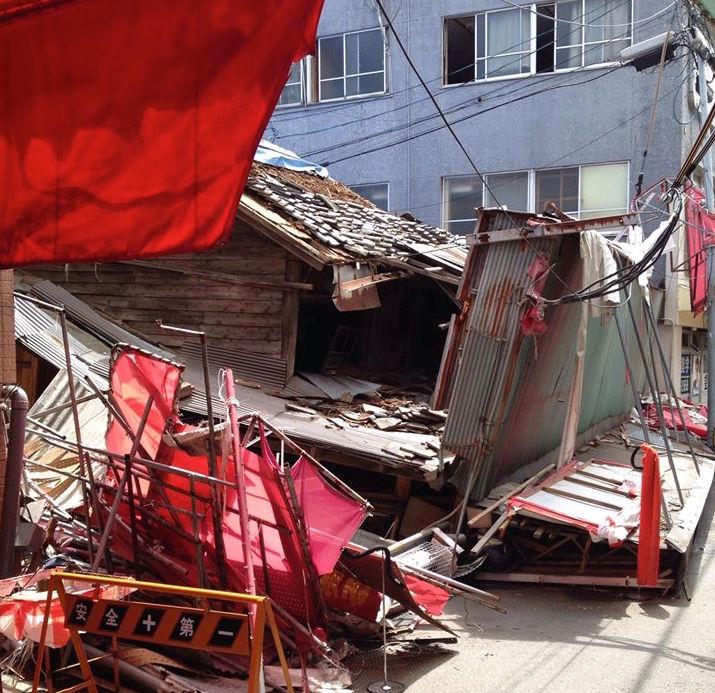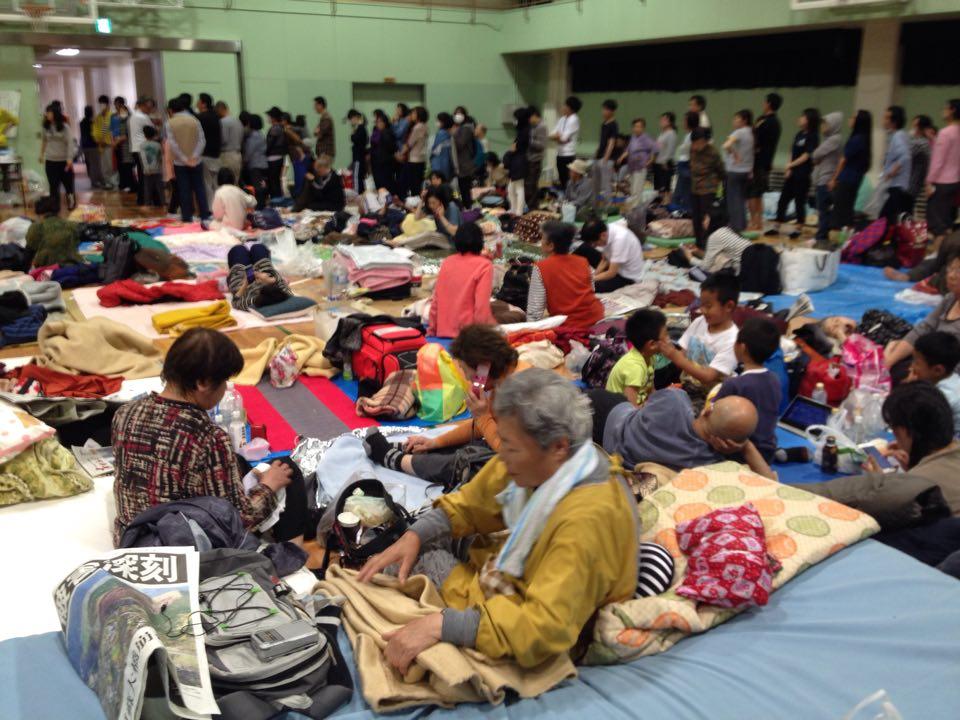After the quake: A ‘spoiled European’ finds Japan at its best in a crisis
Inside one of Kumamoto's volunteer-run relief centers.
The last five days and nights in Kumamoto have been frightening, tense and exhausting. But they could have been worse.
As a writer who’s lived here for several years, I knew already of the famed calm and order the Japanese maintain in a crisis. Now I’ve seen it with my own eyes, and felt it in the free curry rice that filled my belly and the blanket wrapped around me as I slept on Kumamoto University’s gymnasium floor.
I’m one of about 100,000 people in this city staying in shelters after a wave of powerful earthquakes that began on Thursday took down buildings, buckled roads and shut off supply lines. The aftershocks have continued — on Tuesday evening alone there were six or seven level-4 quakes.
My own apartment building is only moderately damaged, but many others are completely destroyed. After four nights in the shelter, I risked sleeping at home on Monday night (but my bags are packed and ready to run in case another big one hits).
Seismic threats are familiar in Japan, which has a well-organized system of disaster response called hinan-sho, meaning place of refuge or shelter. Staffed by volunteers, the shelters normally pop up in school sports grounds or community centers. There are hundreds now operating in Kumamoto.
At the one where I’d been staying, student volunteers in their early 20s are wearing yellow “Staff” jackets from a totally unrelated festival last year. (I was impressed by that thrifty approach — no need to waste money on specific “emergency staff” uniforms when the 50 from last year are still in good condition.)
They’re doing an admirable job, co-operating smoothly though they have no set leaders. They politely hand out free water and food, help old women get out of their wheelchairs, and pass out free blankets. All just to be decent citizens.
Maybe a quarter of the 300-plus people staying in the university’s shelter are not Japanese. There are students from all over — Bangladesh and India, the US and Europe, China. The volunteers care for us all.
And despite the stresses of staying in this center through a horrible second quake on Saturday — even stronger than the one that hit on Thursday — I haven’t seen as much as a cross word exchanged. Incidents of looting or fighting in Kumamoto have been rare, as has been the norm in Japan during past disasters.

Likewise, the nationally run emergency services are excellent. The police, ambulance services and the Japanese “self defense forces” (also known as Jieitai — since WWII they are not to be called the “army”) do brave and tireless work clearing blocked roads and rubble, directing traffic, whisking injured people off to efficient hospitals, delivering water and food and rescuing people trapped under buildings.
My one complaint is that the free market — the corporate chain stores like 7/11, Lawson, Family Mart — is utterly failing us. On Sunday, my food having almost run out, I biked to every conbini (small convenience store) in this whole area, and all of them were nearly empty of food. I mean 90 percent barren. Not a single loaf of bread, not a solitary carton of milk.
Do these wealthy businesses not have the means to make sure essentials reach their shelves in a time of crisis? There has been a real shortage of food for us here in Kumamoto over the last few days, much of it due to impassable roads. Some 200,000 people are still without water. Gas and electricity have also been in short supply.
If it wasn’t for the hinan-sho shelter giving out free dinners, delivered to the area on time by the military, I may have actually gone hungry these last five days in Kumamoto — for the first time in this spoiled European’s life.
Sean Michael Wilson is a comic book writer from Scotland based in Japan.
Every day, reporters and producers at The World are hard at work bringing you human-centered news from across the globe. But we can’t do it without you. We need your support to ensure we can continue this work for another year.
Make a gift today, and you’ll help us unlock a matching gift of $67,000!
